
Kód: 09550586
Bowing to the Emperor
Autor Robine Andrau, Klara Sima Andrau
More than 10,000 women and children. That's how many civilian prisoners of the Japanese were packed into Tjideng, reportedly the worst Japanese concentration camp in Java during World War II. Among these 10,000 mostly Dutch women ... celý popis
- Jazyk:
 Angličtina
Angličtina - Vazba: Brožovaná
- Počet stran: 360
Nakladatelství: Apple Rock Publishing, 2015
- Více informací o knize

Mohlo by se vám také líbit
Darujte tuto knihu ještě dnes
- Objednejte knihu a zvolte Zaslat jako dárek.
- Obratem obdržíte darovací poukaz na knihu, který můžete ihned předat obdarovanému.
- Knihu zašleme na adresu obdarovaného, o nic se nestaráte.
Více informací o knize Bowing to the Emperor
Nákupem získáte 51 bodů
 Anotace knihy
Anotace knihy
More than 10,000 women and children. That's how many civilian prisoners of the Japanese were packed into Tjideng, reportedly the worst Japanese concentration camp in Java during World War II. Among these 10,000 mostly Dutch women and children were Hungarian-born Klara and her three young daughters. Meanwhile Klara's Dutch husband, Wim, a captain in the Royal Dutch Air Force, was among the 1500 military men crammed into a hell ship and transported to Japan as a slave laborer. "Bowing to the Emperor: We Were Captives in WWII," a memoir/biography penned by Klara and daughter Robine, chronicles the Andrau family's experience during those dark years in the then-Dutch East Indies (now Indonesia) and in Japan. The story reveals the fierce determination and ingenuity of a mother and the strength and leadership of a father when faced with starvation, brutality, and unspeakable living conditions. Klara's part of the story details what she did to keep the couple's three children and herself alive and well in body and mind, both during the Japanese occupation in 1942 and during the children's and her subsequent internment. Left with no income after Wim was taken away, Klara scraped along by giving language lessons, teaching the three R's to classes of children, and making and selling jams. Later, when interned in camp, she supplemented their daily diet of a handful of rice, a little piece of gummy bread, and a few leaves of a spinach-like plant by digging up the packed earth and planting some leafy vegetables, which she fertilized with night soil. She also pawed through the camp kitchen garbage looking for anything edible and knitted socks for the Japanese to earn some sweets for her children. She kept the wonder of Christmas alive one year by stealthily evading the patrolling Japanese guard in the predawn darkness, climbing a fir tree next to the barbed wire and bamboo camp fence, and sawing off the tree's top with a toy saw. When decorated with a few candles, the top was transformed into the most magical of Christmas trees. Wim's story centers on his role as the senior officer in charge of 400 Dutch and later an additional 200 American and 2 British POWs in camp Fukuoka #7 in the Japanese coal-mining town of Futase. He led his men with good humor and optimism and negotiated tirelessly with the Japanese commander, sometimes successfully, for shorter work hours in the coal mines (from 12-to-14-hour days to 10-to-12-hour days), for more rest and recreation time (from a partial to a full day "off" every ten days), and for more food. Beatings on the part of the Japanese guards were a perennial problem. By bypassing the Japanese commander and slipping a list of brutality complaints among other suggestions for changes into the hands of the visiting Swedish consul, Wim succeeded in marginally improving the situation for his men. His greatest success, however, was in maintaining order and discipline among the prisoners, reducing friction and increasing understanding between the two main national groups, and building morale despite the dirt, near-starvation rations, disease, brutality, and horrendous work and living conditions in the damp dangerous coal mines and the flea- and lice-infested barracks. Besides being the personal story of a family, "Bowing to the Emperor" is also a universal story of survival and of hope despite loss of country and loss of all material possessions.
 Parametry knihy
Parametry knihy
Zařazení knihy Knihy v angličtině Humanities History Regional & national history
511 Kč
- Plný název: Bowing to the Emperor
- Podnázev: We Were Captives in WWII
- Autor: Robine Andrau, Klara Sima Andrau
- Jazyk:
 Angličtina
Angličtina - Vazba: Brožovaná
- Počet stran: 360
- EAN: 9780996411905
- ISBN: 9780996411905
- ID: 09550586
- Nakladatelství: Apple Rock Publishing
- Hmotnost: 512 g
- Rozměry: 151 × 228 × 26 mm
- Datum vydání: 07. August 2015
Oblíbené z jiného soudku
-

Hundred Years' War on Palestine
338 Kč -

Ten Myths About Israel
335 Kč -

Strange Death of Europe
410 Kč -

Rise And Fall Of The Third Reich
543 Kč -

Citizens
543 Kč -

Last Voyage of the Lusitania
487 Kč -
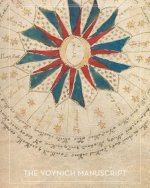
Voynich Manuscript
990 Kč -

Moshe Dayan
675 Kč -

The Fourth Turning
391 Kč -

General's Son
429 Kč -

Reverence for Wood
215 Kč -

Yitzhak Rabin
411 Kč -

Hell's Cartel
524 Kč -

Interpreting Our Heritage
487 Kč -

Paradise Lost
358 Kč -
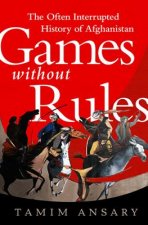
Games without Rules
450 Kč -

Voices of the Foreign Legion
406 Kč -

American Nations
422 Kč -

Lynching in the New South
847 Kč -
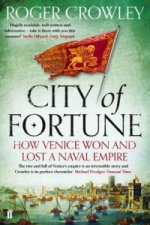
City of Fortune
357 Kč -

Thirteenth Tribe
420 Kč -
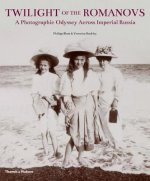
Twilight of the Romanovs
943 Kč -

Habsburg Monarchy 1809-1918
410 Kč -

Ethnic Cleansing of Palestine
357 Kč -

Decline and Fall of the Roman Empire
130 Kč -

Palestine
545 Kč -

The Secret Diaries Of Miss Anne Lister: Vol. 1
304 Kč -

Giza Power Plant
365 Kč -
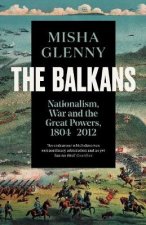
The Balkans, 1804-2012
543 Kč -

Age Of Revolution
410 Kč -
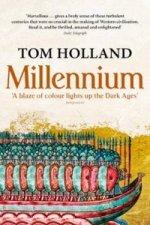
Millennium
358 Kč -

Alexiad
423 Kč -
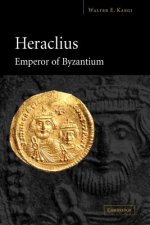
Heraclius, Emperor of Byzantium
774 Kč -

1948
692 Kč -
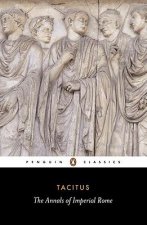
Annals of Imperial Rome
357 Kč -

Strike and Hold
703 Kč -

Diana: Her True Story - In Her Own Words
306 Kč -

How to be a Victorian
357 Kč -

The Oxford History of Ancient Egypt
383 Kč -

Londoners
316 Kč -

History of Japan
405 Kč -

Illustrated Encyclopedia of Uniforms of the American War of Independence
543 Kč -

Olympic, Titanic, Britannic
750 Kč -

Medieval Monsters
277 Kč -

Secret History
303 Kč -

The Thirteenth Tribe
308 Kč -

Footnotes in Gaza
597 Kč -

Biggest Prison on Earth
357 Kč -

Great Gatsby (Wisehouse Classics Edition)
405 Kč
Osobní odběr Praha, Brno a 12903 dalších
Copyright ©2008-24 nejlevnejsi-knihy.cz Všechna práva vyhrazenaSoukromíCookies








 Vrácení do měsíce
Vrácení do měsíce 571 999 099 (8-15.30h)
571 999 099 (8-15.30h)